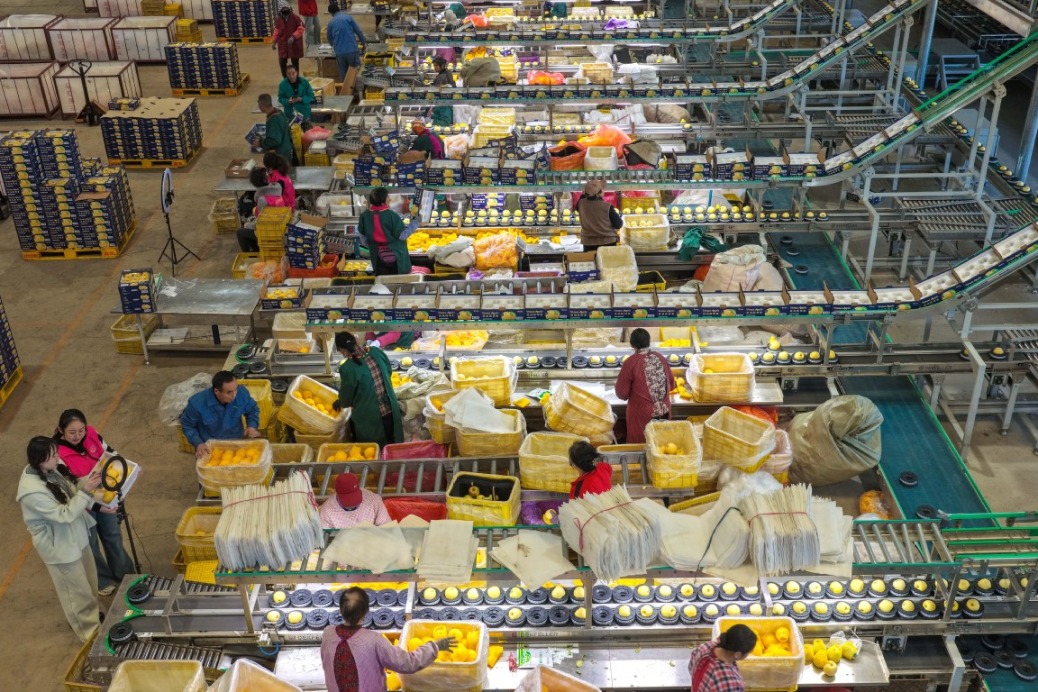Far-right looms large in Germany's parliament
By EARLE GALE in London | China Daily Global | Updated: 2025-03-27 09:21

Germany's newly elected parliament, or Bundestag, convened on Tuesday for the first time since last month's federal election, with the far-right Alternative for Germany, or AfD, taking up a record number of seats but no role in government.
The AfD, which finished second in the Feb 23 poll that ended the center-left government of (the now caretaker chancellor) Olaf Scholz, has been excluded from coalition talks aimed at forming the next government.
The conservative bloc comprising election winners the Christian Democratic Union, or CDU, and the Christian Social Union, or CSU, has instead spoken to third-placed finishers the Social Democrats, or SPD.
The AfD, which doubled its share of the vote to 20.8 percent and has 152 seats in the 630-seat legislature, is now the largest far-right bloc in a German parliament since 1945 and has railed against its exclusion — with parliamentary leader Bernd Baumann saying: "Your tricks won't prevent our rise."
Friedrich Merz, leader of the CDUCSU alliance, will become the country's next chancellor after his coalition with the SPD is formally in place. Like all German leaders since 1945, he has vowed not to work with the AfD because of its anti-immigrant, far-right philosophy that is reminiscent of Germany's fascist past. However, unlike leaders before him, Merz will find it difficult to ignore the far-right because of its size.
While the talks between Merz's CDU-CSU alliance and the SPD continue, the new parliament, known as the 21st session of the Bundestag, convened with Merz saying "trust is growing" between his party and the SPD, and predicting that his new government will be in place by April 20.
"I am very confident that we can do this," the broadcaster Deutsche Welle quoted him as saying. The broadcaster said the coalition talks have been held up on disagreements over taxes, welfare policy and migration.
Merz, who campaigned on fiscal responsibility and adhering to Germany's so-called debt brake, has also surprised supporters by promising to rescind the measure that prohibits unfettered government borrowing, and increasing spending on infrastructure, environmental projects, and the military.
The new parliament began this week by electing former minister Julia Kloeckner to serve as its speaker, or parliament president — a role that is technically subservient only to the president and superior to that of the chancellor.
Kloeckner, who was agriculture minister from 2018 to 2021 in Angela Merkel's final government, said she will endeavor to ensure all voices are heard in the new parliament.
"I will take care that we deal with each other in a civilized way — and if we don't do that, learn to (do that)," The Associated Press quoted her as saying.
























